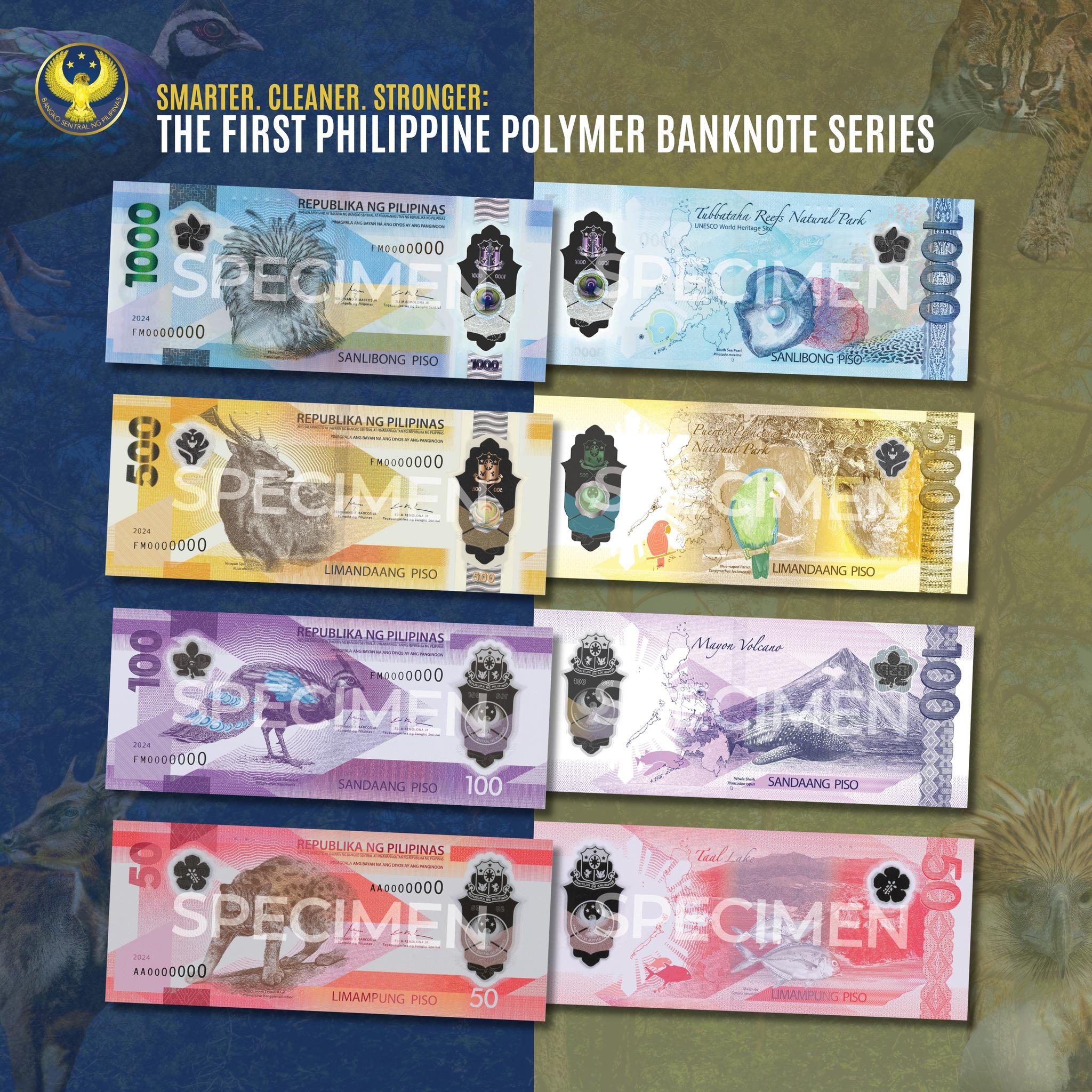BSP: Majority of Filipinos support polymerization of PH banknotes

A survey conducted by the Bangko Sentral ng Pilipinas (BSP) showed that majority of Filipinos support the polymerization of Philippine banknotes.
According to the BSP, its Consumer Expectation Survey conducted in the first quarter of the year found that 61.3% of respondents supported the overall initiative of Philippine banknotes polymerization, higher than the 10.9% in the previous year.
The central bank earlier this month unveiled the new polymer banknotes that come in denominations of P500, P100, and P50, showcasing images of native and protected species, as well as local weave designs.
The new polymer banknote denominations will be available in limited quantities in the Greater Manila Area this December, but are set to fully enter into circulation in the first quarter of 2025.
The August Twenty-One Movement (ATOM) has expressed disapproval of the decision to replace the images of Philippine heroes with local wildlife, as it questioned the implications of omitting the significant people in history from the banknotes.
Kiko Aquino Dee, a grandson of the late Senator Ninoy Aquino Jr. and former President Corazon “Cory” Aquino, likewise expressed disappointment over the redesign, saying that “they are changing our banknotes — a move initiated by the Duterte administration — so they don’t have to face our heroes while betraying their sacrifices.”
For its part, the BSP maintained that the Philippine paper banknotes, which feature the country’s heroes, will remain in circulation alongside the new polymer bills.
“The introduction this month of new polymer banknote denominations — namely, 500- 100-, and 50-piso notes — followed studies that show the smarter, cleaner, and stronger characteristics of polymer banknotes,” BSP said in a statement on Thursday.
Security features
The central bank said polymer banknotes are “smarter” as these incorporate advanced security features and that counterfeits of such bills were harder to manufacture. It also said that its global warming potential is 38.36% lower than that of its paper counterpart.
BSP data show that there were only 10 counterfeits out of the 825.4 million polymer banknotes in circulation from 2022 to November 2024, versus the 98,316 counterfeits out of the 1.86-billion paper banknotes.
To recall, the P1,000-polymer banknote was first revealed to the public in December 2021, and was released into circulation in April 2022.
The central bank survey found that 68.3% of respondents who were aware of the P1,000 polymer banknote approved of it, up from 38% the same period in 2023.
“Since the release of the 1,000-piso polymer denomination in April 2022, public acceptance has steadily grown,” the BSP said.
The BSP also noted that the polymer banknotes are “cleaner” as they are less likely to get damaged or dirty due to water, oil, and dirt, and are “stronger” as they have a lifespan of as long as 7.5 years versus the paper banknotes’ 1.5 years.
—VAL, GMA Integrated News




